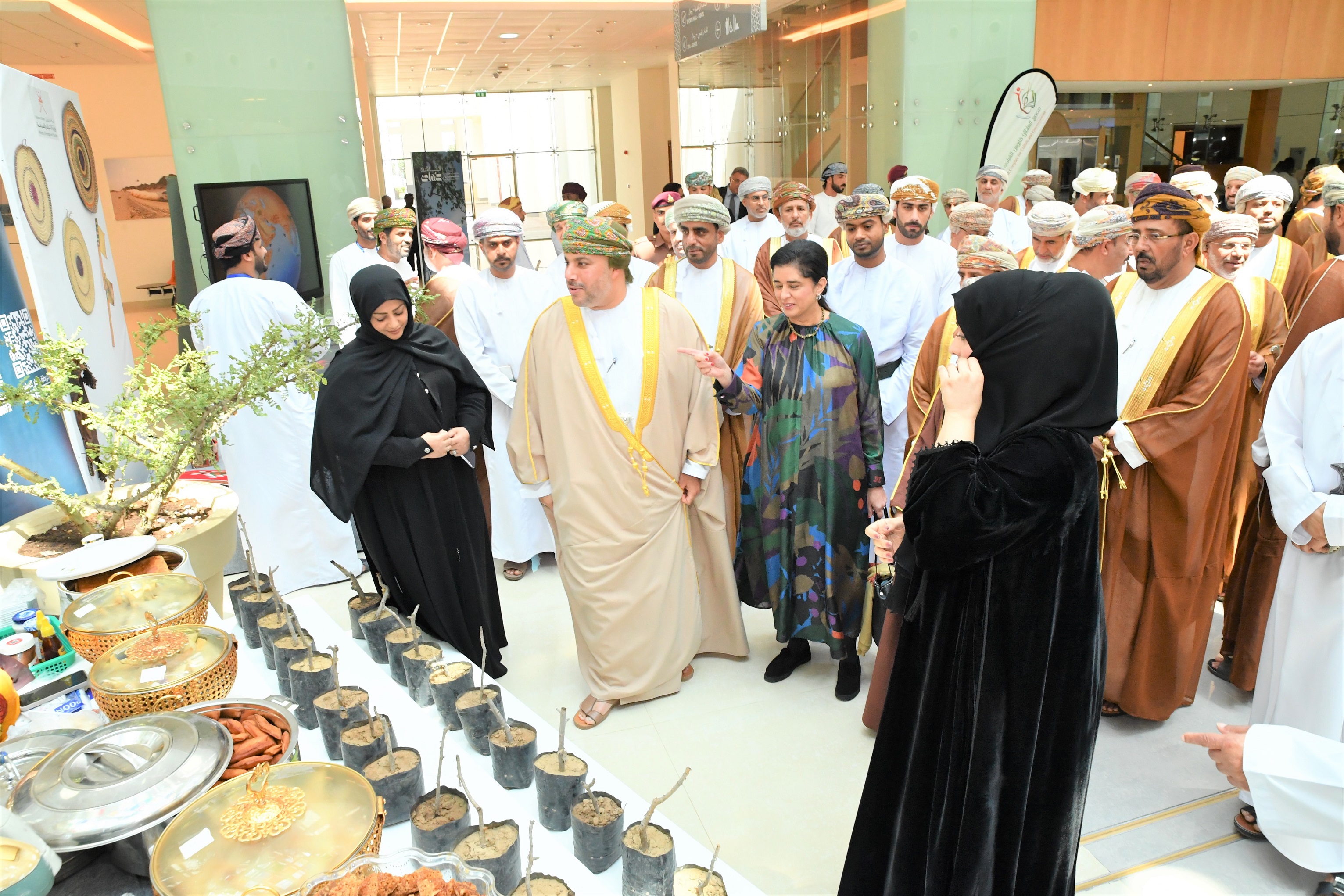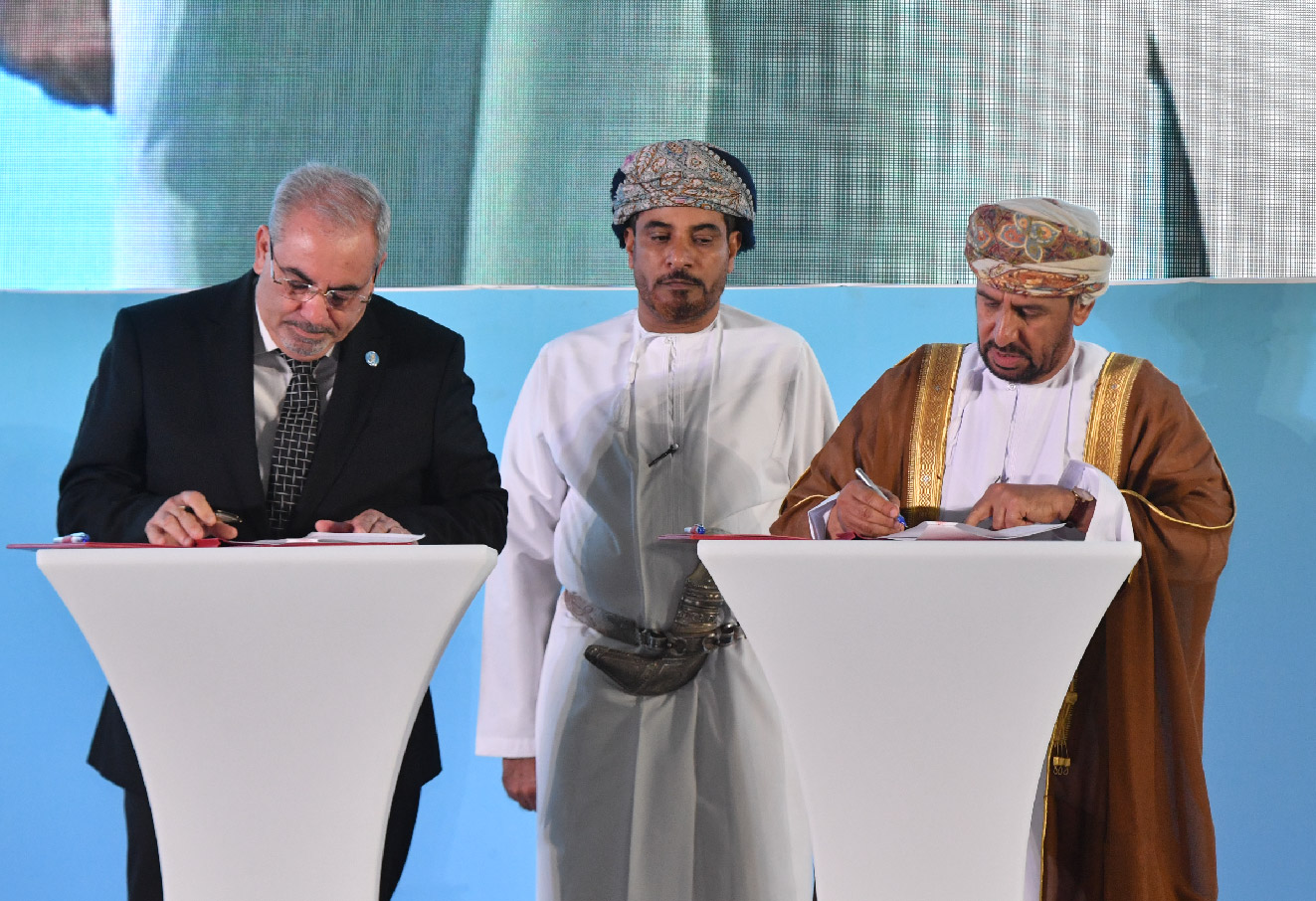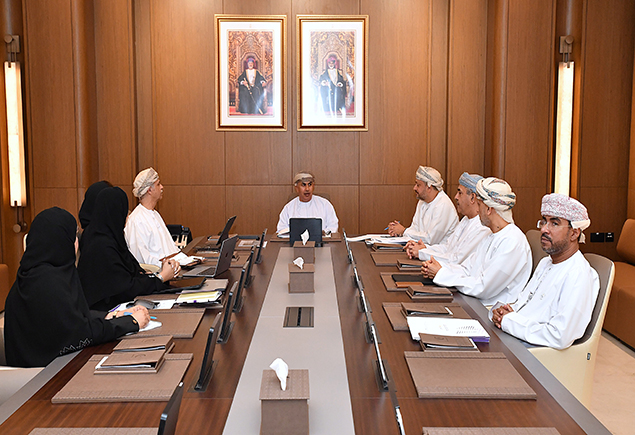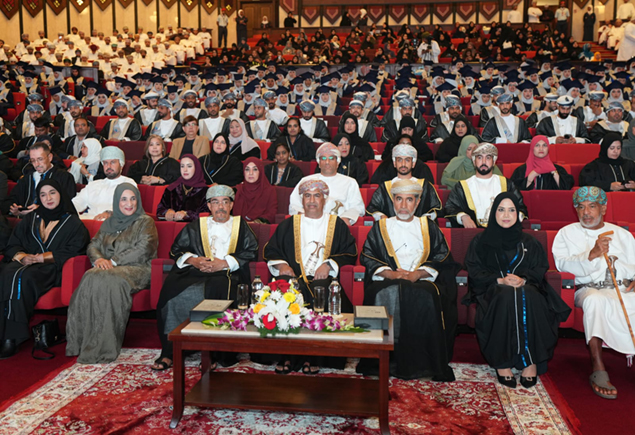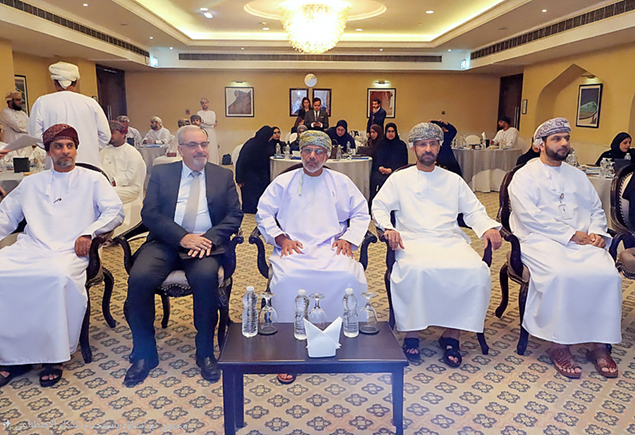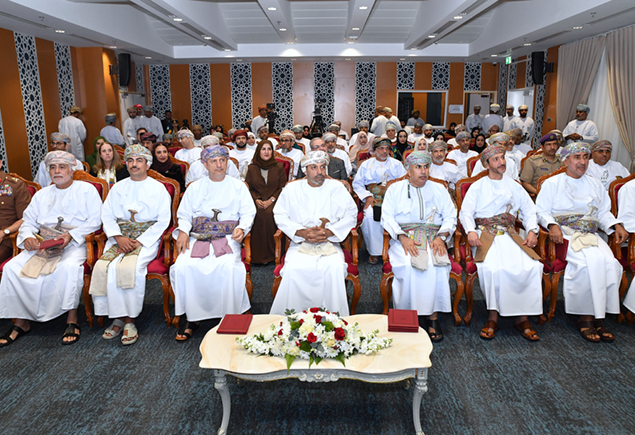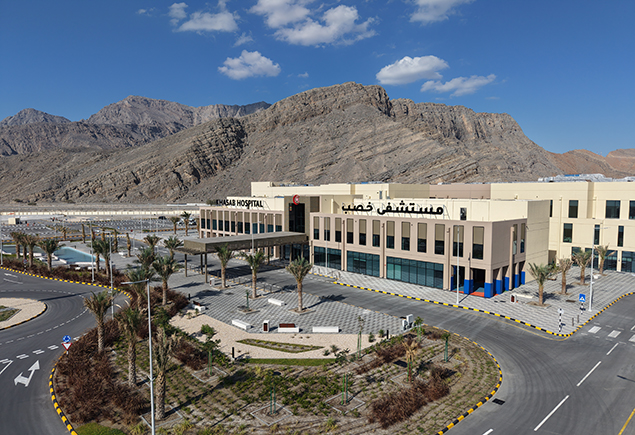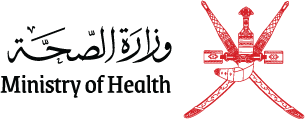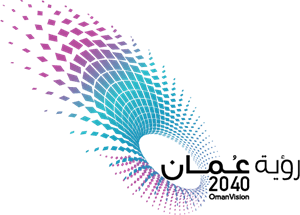First Conference on Healthy Cities began today (Wednesday) at Sultan Qaboos Youth Complex for Culture and Entertainment in Salalah.
The opening ceremony was inaugurated under the patronage of H.H. Sayyid Marwan bin Turki Al Said, Governor of Dhofar, in the presence of H.E. Dr. Hilal Ali Al Sabti, Minister of Health, H.E. Dr. Hanan Balkhy, Regional Director of the World Health Organization for the Eastern Mediterranean Region, along with Ministry’s Undersecretaries, governors, and officials from MOH and WHO.
The two-day conference is organized by the Ministry of Health represented by the Directorate General of Health Services in Dhofar Governorate and the Directorate General of Health Services and Programs at the Ministry in cooperation with the World Health Organization (WHO).
His Excellency Dr. Saeed Harib Al Lamki, MOH’s Undersecretary for Health Affairs delivered a welcoming speech in which he explained that the health sector is not only concerned with providing health services but rather it is a sector built on partnership and integration. He noted that it contributes to the ongoing developmental renaissance in the Sultanate of Oman and aims to establish the concept of transitioning the health sector from merely a service provider to a developmental sector.
The health sector relies on several strategies including the principle of justice and equality in the distribution of health services approaching what is called the social determinants of health, Dr. Al Lamki added, noting that the experience of health committees —rooted in Omani identity—with the direct interest of Their Excellencies the Wallis – has been an excellent model of sectoral cooperation aimed at achieving optimal results in public health indicators and primary healthcare, thereby ensuring universal health coverage and sustainable development goals.
H.E. Dr. Hanan Balkhy, WHO-EM Regional Director delivered a speech in which she stated that the Healthy Cities Program provides one of a multi-sectoral platform through which effective health action can be taken. She emphasized that having a Healthy Cities program is essential for addressing and promoting health determinants. In the Sultanate of Oman, there are currently five Healthy Cities, including the first Healthy Island in the Eastern Mediterranean region, which is Masirah Island.
She added that this conference offers an opportunity to benefit from successful experiences, allowing experts and stakeholders from civil society to exchange knowledge and ideas with advocates of Healthy Cities.
MOH’s Undersecretary for Health Planning and Regulation H.E. Dr. Ahmed Salem Al Mandhari delivered a lecture entitled “Health in All Policies: A Platform for the Success of the Healthy Cities Approach”. In his presentation, he highlighted the concept of the “Health in All Policies” approach, its components, significance, and the challenges it faces, as well as the methods used for its implementation. Al Mandhari also touched upon the importance of using this approach in implementing healthy cities and villages projects in terms of the participation of all sectors and members of society to implement the national health policy based on the fact that health is everyone’s responsibility.
His Excellency Dr. Ahmed Mohsen Al Ghassani, the Chairman of Dhofar Municipality gave a presentation on urban planning for Healthy Cities, using Dhofar Municipality as a model.
Dr. Huda Al Siyabi, MOH’s Director of Community Health Initiatives presented the healthy cities and villages in the Sultanate of Oman.
On the first day of the conference programme, several scientific sessions were held. The first session was entitled “Healthy Cities: A Platform for Achieving Sustainable Development Goals”. It focused on Healthy Cities and sustainable development goals, the regional network of Healthy Cities in the Eastern Mediterranean region, the implementation of the Healthy Cities initiative in Kuwait—highlighting models, achievements, and lessons learned over ten years—and the concept of resilient cities in facing climate change and natural disasters. Medical experts and health groups from the World Health Organization's Eastern Mediterranean region and several Gulf and Arab countries spoke in the session.
Sub-sessions were also held, covering various topics, including Healthy Villages as a tool for a healthier community, the role of Wa’d Health Village in promoting health among community members, and the role of Healthy Cities and Villages in enhancing cooperation between the community and service institutions in both the public and private sectors. The experiences of North Sharqiyah in implementing Healthy Villages, the role of Healthy Villages in South Al-Batinah in promoting health, and successful community interventions to enhance health were also discussed.
Additionally, topics included age-friendly cities and communities, the success of Saudi Arabia's strategy in implementing the Healthy Cities program and initiatives, contributing to Vision 2030 and sustainable development goals, the community competition to reduce the spread of drugs and psychoactive substances, and enhancing and exchanging experiences and collaboration among Healthy Cities. The sessions also focused on regional networks of Healthy Cities to enhance the knowledge of those working in Healthy Cities and to apply a scientific approach to the program.
The conference brings together various stakeholders related to Healthy Cities and Villages, including government sectors, civil society, individuals, the private sector, and those interested in sustainable development themes, both from within the Sultanate of Oman and the region.
The conference aims to discuss the current status of the Healthy Cities program in the Sultanate of Oman, including its strengths and weaknesses, challenges, and opportunities based on success stories and lessons learned. It will facilitate dialogue on mechanisms to expand the Healthy Cities program as a multi-sectoral platform for achieving sustainable development goals. The discussions will also cover the establishment of a national network for Healthy Cities and Villages and how to leverage the Healthy Cities platform (multi-sectoral) to work with other community components, such as age-friendly cities, health-promoting schools and universities, health-promoting commercial complexes, child-friendly cities, the inclusion of people with disabilities, and safe cities and communities.
During the conference, a memorandum of understanding and cooperation was signed between the World Health Organization office in the Sultanate of Oman and the Health Committee in Salalah to implement the Healthy Cities Program. The memorandum was signed by H.E. Sheikh Mohammed Saif Al Busaidi, Wali of Salalah and Chairman of the Health Committee, and H.E. Dr. Jean Jabbour, WHO Representative in Oman. the signing took place as part of a genuine partnership between the two parties in various fields aimed at enhancing the health of community members.
It is worth noting that the Ministry of Health adopts numerous community initiatives across various governorates of Oman, targeting different population groups through various programs such as the Healthy Cities and Villages Program, Elderly Friendly Cities and Health-Promoting Schools. The Nizwa Healthy Lifestyles Project is one of the models for applying the concept of healthy cities in reducing non-communicable diseases and the risk factors leading to their infection.
The conference featured an exhibition that included scientific posters from the participants, providing an opportunity for them to exchange knowledge in the field of Healthy Cities.

